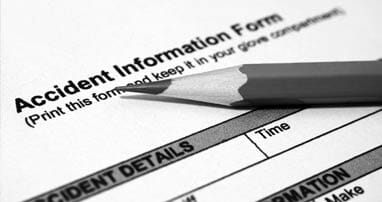$5
Million
$5 million settlement
We recently won a $5 million settlement for a wrongful death & injury case to survivor due to car crash.
Insurance Bad Faith Claims Made in Indianapolis
How our Indiana attorneys can help…Not only can a personal injury lawyer help by explaining the coverage of the insurance policy in terms that you can easily understand, he or she will act as a buffer between you and the adjuster assigned to your claim. If a settlement offer is made, your attorney will be able to advise you whether it is reasonable or may suggest a counter-offer.

Insurance companies are required to deal with claimants in good faith. They must honor their contract with the insured and pay legitimate claims. That’s true whether the claim is being made as a result of a motor vehicle accident, a bicycle accident, a house fire, or an occupational injury. If they don’t, they may be held to account in a bad faith civil suit.
Read more below about insurance companies and bad faith claims handling. If you feel that an insurance company has been dealing with you unfairly, call Mike Stephenson, Indianapolis bad faith lawyer, at 317-680-2501 for a free initial consultation and evaluation of your potential claim against the company. When others breach their duty, we keep ours.
Actions that could be evidence of bad faith
Not every denial of a claim or a disappointing offer is evidence of bad faith. Under Indiana law, Code § 27-4-1-4.5, these are some of the claim settlement practices declared to be unfair:
(1) Misrepresenting pertinent facts or provisions of the insurance policy provisions which relate to the accident; for example, telling the claimant that the policy doesn’t cover a certain type of loss when it actually does.
(2) Failing to acknowledge and act “reasonably promptly” when notified of a claim. While this is open to interpretation, most companies expect their employees to acknowledge a claim within 14 days.
(3) Failing to either affirm or deny coverage of claims within a reasonable time after proof of loss statements have been completed.
(4) Refusing to pay claims without conducting a reasonable investigation based upon all available information; for example, denying payment for a car wreck without obtaining a copy of the police report which could implicate their insured.
(5) Not attempting in good faith to effectuate prompt, fair, and equitable settlements of claims in which liability has become reasonably clear.
(6) Attempting to settle a claim for less than the amount to which a reasonable person would have believed he was entitled or attempting to substantially diminish a claim and compelling the insured to initiate litigation.
Disagreeable, but not Unfair
Dealing with an insurance company after an accident is not always a pleasant task. Their questions may make you feel defensive; they may want to take a recorded statement from you or require you to fill out papers; the insurance adjuster may not be very understanding of your problems . . . after all, their main focus is protecting their company’s bottom line.
These are some of the realities of having an accident claim that may be disagreeable but are not considered evidence of bad faith:
- The insurance company may offer less than you think you deserve. Just because you and the adjuster have a difference of opinion about how much your claim is worth, this doesn’t necessarily mean the company is acting in bad faith. If they refuse to give you any reasons for their evaluation or seem to be simply bullying you into taking them to court, contact a bad faith lawyer. You can use our online contact form.
- You may be required to give an Examination Under Oath (EUO) – and even more than one. Virtually all property and casualty policies (those that cover your home, auto, business, or contents) give the insurance company the option of investigating your claim by means of an EUO. Because your answers to the questions can be used to deny your claim, you should seek counsel from an experienced attorney to help you with this.
- You may disagree with an insurer’s denial of your claim. But unless the denial was made with “dishonest purpose, moral obliquity, furtive design, or ill will,” the company will not be found to have acted in bad faith.
How an Attorney Can Help
Not only can a Indiana personal injury lawyer help by explaining the coverage of the insurance policy in terms that you can easily understand, he or she will act as a buffer between you and the adjuster assigned to your claim. If a settlement offer is made, your attorney will be able to advise you whether it is reasonable or may suggest a counter-offer.
More than that, studies have shown that claimants who have hired attorneys wind up getting significantly more than those who go it alone. The Insurance Research Council found that, on average, insurance payouts are 3.5 times higher for clients who have legal counsel.
Having a lawyer representing you in your claim against an insurance company may discourage any effort on their part to unreasonably delay or deny what you are due. If they do act in bad faith and there is clear and convincing evidence that they acted with malice, fraud, gross negligence or oppressiveness, you may be able to recover punitive damages in excess of the policy’s limits.

 Mike Stephenson has 40 years of experience and is a trusted advisor to many individuals and companies. His current practice is dominated by civil litigation in state and federal courts. He focuses much of his time on handling catastrophic injuries caused by all types of accidents, including motor vehicle, trucking, workplace injuries, product liability, and fire, just to name a few. He also works extensively in construction accidents. [
Mike Stephenson has 40 years of experience and is a trusted advisor to many individuals and companies. His current practice is dominated by civil litigation in state and federal courts. He focuses much of his time on handling catastrophic injuries caused by all types of accidents, including motor vehicle, trucking, workplace injuries, product liability, and fire, just to name a few. He also works extensively in construction accidents. [ 


